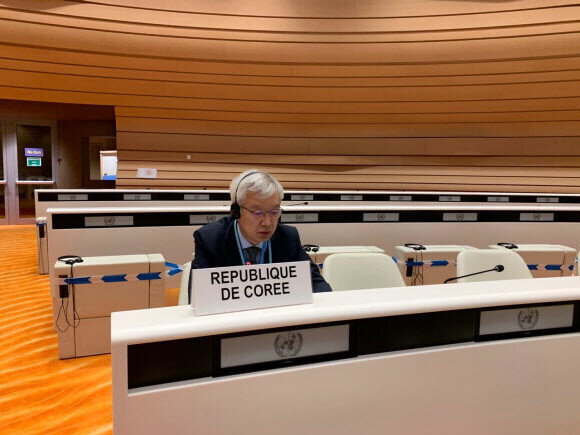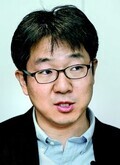hankyoreh
Links to other country sites 다른 나라 사이트 링크
[Column] Is South Korea developed in name only?


Last July, the UN Conference on Trade and Development recategorized South Korea as a developed country — the first time it has upgraded a country’s development status since the body’s establishment in 1964.
Sixty years ago, Korea was poorer than most countries in Africa. But today, it stands shoulder to shoulder with the developed economies of the West.
As of 2020, Korea has the world’s 10th largest economy, and it has also been invited to attend a meeting of the Group of Seven, the club of rich countries. Korea’s per capita national income is already higher than that in Japan and some European countries, including France, in terms of purchasing power and will outstrip them even under market rates within a few years.
It’s extremely rare for one of the world’s many developing countries to catch up with developed countries. That’s a source of great pride for someone like myself who teaches Asian and African students overseas.
But when I hear about recent developments in Korea, I spy considerable evidence of the darkness obscured by the glory of becoming a developed country. A few weeks ago, the outer wall of an apartment building going up in Gwangju collapsed, leaving one subcontracted worker dead and five others missing. Another person working for a subcontractor at a POSCO steel plant in Pohang died after being caught in heavy machinery.
In 2020, an average of 2.4 workers died every day in industrial accidents in Korean workplaces. In 2017, Korea has the third highest fatal accident rate in its total workforce among members of the Organisation for Economic Co-operation and Development. Even worse, Korea’s fatality rate in the construction industry was 25.5 per 100,000 workers, the highest in the OECD, and more than triple the OECD average of 8.3.
Compared with other developed economies, Korea’s economic growth rate, productivity and wage growth rate are all much higher than other advanced economies. Korea has also done a tremendous job combatting COVID-19.
And yet Korea belongs to the cohort of countries with the biggest gap in disposable income and the highest relative poverty rate. The suicide rate among Korean workers is extremely high, and Korea’s birth rate is the lowest in the world.
Korea’s social spending as a percentage of gross domestic product has been shooting up, but as of 2019, it still stood around 12%, just half of the OECD average of around 20%.
Furthermore, Korea hasn’t done enough to curb carbon emissions, which are rising faster than in any developed country, leading the country to be dubbed a “climate villain.” While Koreans are obviously much better off than they used to be, questions remain about whether they’re any happier today and whether Korea is actually a better place to live.
Last November, the Pew Research Center published the results of a survey in which it asked people from 17 developed countries what makes their lives meaningful. In most countries, family was ranked first; the average ranking was family, job, and material well-being.
Korea was the only country in which people ranked material well-being first. To be sure, material well-being was also important in other countries, but non-Koreans saw other factors as being more important.
Some caution is needed is interpreting the results of this open-ended survey because Koreans were especially likely to only provide one answer, although multiple answers were allowed. But the results do suggest that Koreans tend to place more importance on material well-being than people in other countries.
The survey results are likely connected to the uncertainty of life in Korea, with its relentless rat race and dog-eat-dog mentality. While Korea has made rapid economic achievements, it remains a society in which vested interests stand secure; social trust, solidarity and safety nets are lacking; and a huge chasm separates the top 10%, snug inside their fortress, and everyone else huddling outside.
In the end, many people without stable jobs at big conglomerates or in the public sector struggle with unending insecurity, and their children feel as if they start out life with a disadvantage. That has led to a drastically low birth rate that some describe as a society-wide suicide pact.
It’s widely known that even those children and teenagers with the good fortune to be born in Korea score lower in happiness measures than those in other developed countries.
Not long ago, a presidential candidate for the ruling party pledged to raise the national income to US$50,000. While continuing economic growth is important, Korea is already a developed country — even more important today is for Korea to compensate for the shortcomings of our society.
Many people, myself included, expected this presidential election would deal with the big issues, including how we mean to tackle severe inequality, the low birth rate and climate change. I bet many of us also wanted to hear about efforts to dismantle vested interests and make competition fairer, about ways to address the changing relationship between technology and labor. That’s why the election campaigns and pledges of candidates from both the ruling and opposition parties feel so disappointing.
My students sometimes tell me they envy Korea’s dazzling economic growth and ask me about the current situation in Korea. I wish I could tell them that Koreans today are still working hard to make a developed economy in which everyone can enjoy safety and happiness.
Please direct questions or comments to [english@hani.co.kr]

Editorial・opinion
![[Column] Season 2 of special prosecutor probe may be coming to Korea soon [Column] Season 2 of special prosecutor probe may be coming to Korea soon](https://flexible.img.hani.co.kr/flexible/normal/500/300/imgdb/original/2024/0426/3317141030699447.jpg) [Column] Season 2 of special prosecutor probe may be coming to Korea soon
[Column] Season 2 of special prosecutor probe may be coming to Korea soon![[Column] Park Geun-hye déjà vu in Yoon Suk-yeol [Column] Park Geun-hye déjà vu in Yoon Suk-yeol](https://flexible.img.hani.co.kr/flexible/normal/500/300/imgdb/original/2024/0424/651713945113788.jpg) [Column] Park Geun-hye déjà vu in Yoon Suk-yeol
[Column] Park Geun-hye déjà vu in Yoon Suk-yeol- [Editorial] New weight of N. Korea’s nuclear threats makes dialogue all the more urgent
- [Guest essay] The real reason Korea’s new right wants to dub Rhee a founding father
- [Column] ‘Choson’: Is it time we start referring to N. Korea in its own terms?
- [Editorial] Japan’s rewriting of history with Korea has gone too far
- [Column] The president’s questionable capacity for dialogue
- [Column] Are chaebol firms just pizza pies for families to divvy up as they please?
- [Column] Has Korea, too, crossed the Rubicon on China?
- [Correspondent’s column] In Japan’s alliance with US, echoes of its past alliances with UK
Most viewed articles
- 1AI is catching up with humans at a ‘shocking’ rate
- 21 in 5 unwed Korean women want child-free life, study shows
- 3Korea’s 1.3% growth in Q1 signals ‘textbook’ return to growth, says government
- 4Division commander ordered troops to enter raging flood waters before Marine died, survivor says
- 5[Column] Park Geun-hye déjà vu in Yoon Suk-yeol
- 6[Column] Season 2 of special prosecutor probe may be coming to Korea soon
- 7Marriages nosedived 40% over last 10 years in Korea, a factor in low birth rate
- 8[Column] Has Korea, too, crossed the Rubicon on China?
- 9‘Weddingflation’ breaks the bank for Korean couples-to-be
- 10Is Japan about to snatch control of Line messenger from Korea’s Naver?